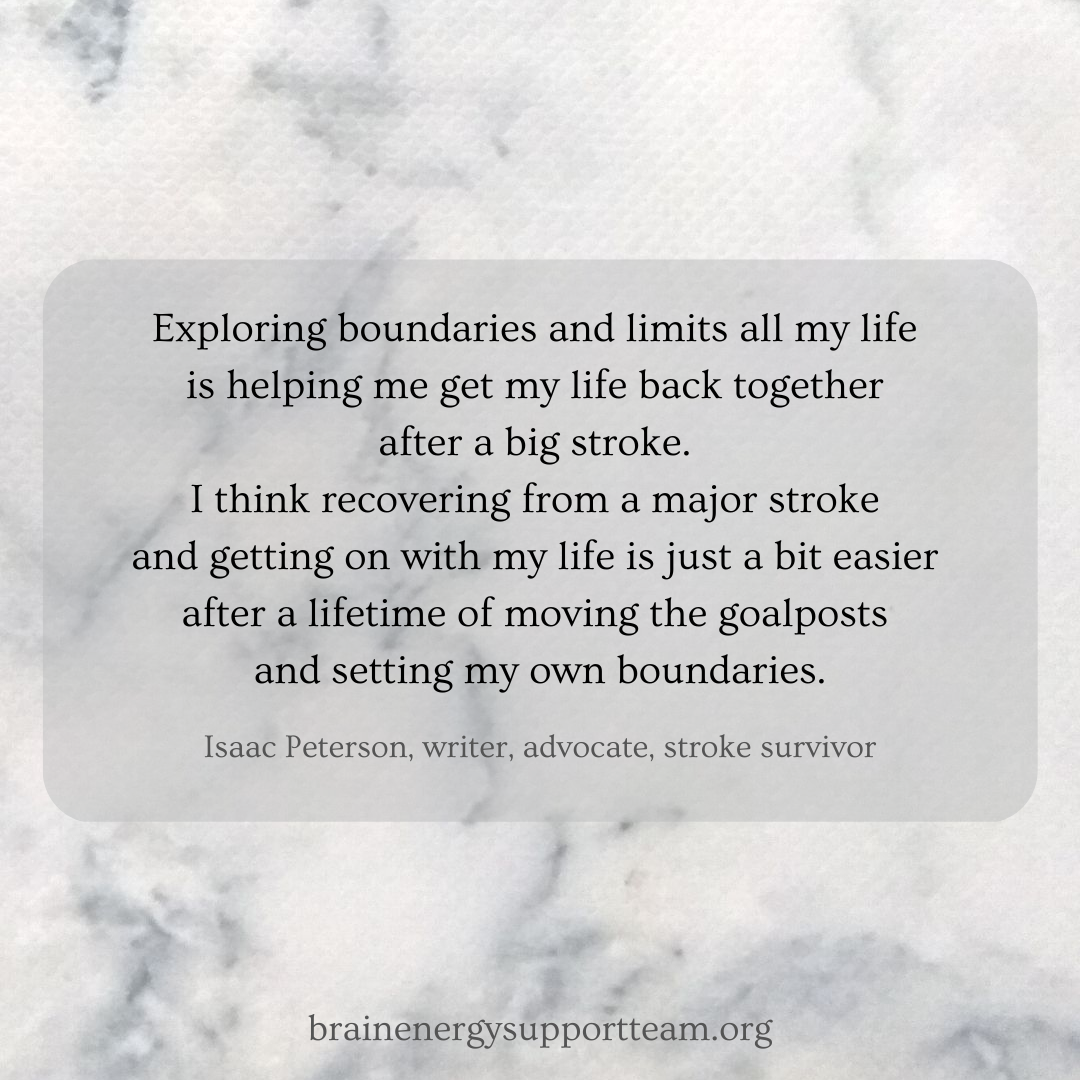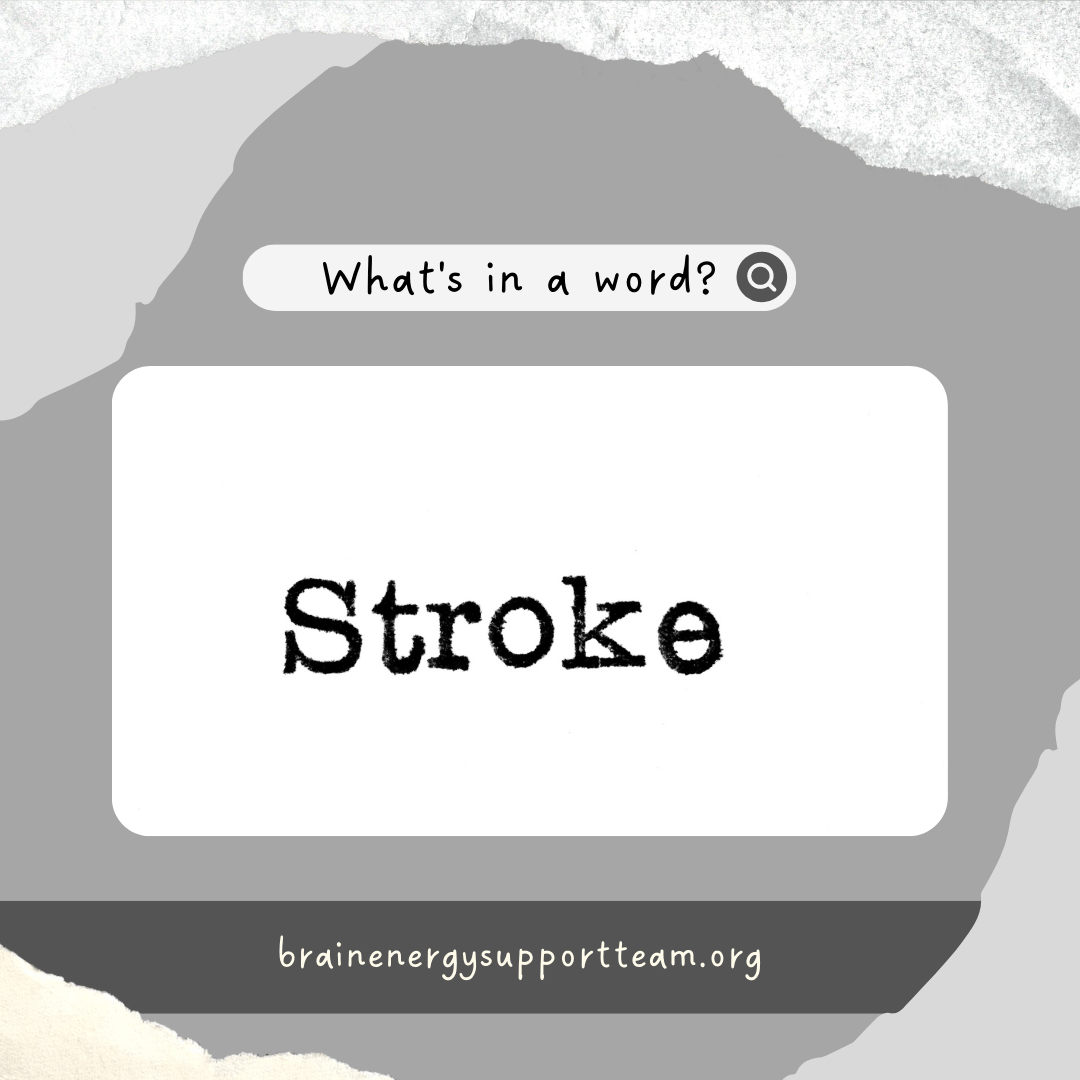 One of the questions I’m asked sometimes when I meet someone new is, “What kind of therapy are you in?” or a statement about how whichever therapy I’m undergoing seems to be working really well. The truth is that I’m not in any kind of ongoing therapy. Or more accurately, I’m not officially in any therapy advocated by medical professionals. After undergoing some therapy while I was hospitalized following my stroke, and a few sessions immediately following my release, I have given myself the freedom to determine my own regimen and to follow the course that I feel works the best for me.
One of the questions I’m asked sometimes when I meet someone new is, “What kind of therapy are you in?” or a statement about how whichever therapy I’m undergoing seems to be working really well. The truth is that I’m not in any kind of ongoing therapy. Or more accurately, I’m not officially in any therapy advocated by medical professionals. After undergoing some therapy while I was hospitalized following my stroke, and a few sessions immediately following my release, I have given myself the freedom to determine my own regimen and to follow the course that I feel works the best for me.
And by all accounts, what I’m doing seems to be working out fine.
While I was in the hospital, I was required to undergo physical, occupational, and speech therapy and it didn’t take long for me to openly start to question why I had to go through it. The answers I got pretty much boiled down to “Because this is what you’re supposed to do after you’ve had a stroke.”
Even in my befuddled mental state at the time, that didn’t make sense to me. I didn’t know at the time what was rubbing me the wrong way about it, but I do now. It came to me when I learned that no two traumatic brain injuries are exactly alike. So then why is the followup therapy generic and one size fits all? Why not work with me to custom tailor a program especially for me?
One session I endured in the hospital really stands out and I think will help me explain what my problem is.
Someone on the staff somehow found out that I had been an investigative journalist. A therapy session was set up with me where it announced that we were going to map out a strategy for a fictitious investigation. I had plenty of investigative experience, and some awards for my investigative work. I think I have enough professional recognition to safely say I know what I’m doing.
But the therapist didn’t. She didn’t seem to want to know what I thought, as much as to tell me the steps I needed to go through. She downplayed what I had to say and insisted that what she said was how it should be done. And she completely disdained my comments that going about things her way would put her in legal jeopardy.
But I never went through anything that hit that kind of sweet spot deep inside of me that indicated to me that what I went through was working. I can’t exactly explain what I mean, but I know the feeling in that sweet spot when I feel it.
I really do wish that before I was put through all that, someone had sat and talked to me for a while and worked to figure out what a plan for ME and what would be best for ME would look like. My doctor tells me all the time I have a strong and disciplined mind, but I never underwent a therapy that acknowledged that I might already have something going for me and work from there.
I still have neuromuscular deficiencies that I have to overcome, but my doctor thinks that what I’m doing on my own is working just fine. He is the only medical professional that has taken the time and made the effort to even talk to me about what I’m going through, and I believe that if he thought I needed to be doing something else, he would sure say so. And I would do what he recommended, because he has bothered to get to know me, not just as a patient but as a person, and understand my situation.
I don’t have a lot of experience with caregivers, but from things I’ve heard from others with caregivers, I have to wonder how much they listen to what those in their care have to say or what they think. I have to wonder how many are prepared to deviate from the pre-written script and meet those under their care where they really are.
We are all individuals and what is best for one of us is not necessarily what works for others; if no two brain injuries are alike, why is so much therapy one size fits all? No one else can know what each of us needs most, so why not individually tailored therapy?
I have insisted on keeping my power over myself and although I’m not out of the woods, what I’m doing seems to be working. You can see some of my progress here; just the fact that I am trying to stick to a somewhat regular writing schedule.
Although writing doesn’t exactly come easy to me, I still manage to sometimes kick my brain into working order and get those muscles back to fighting condition. Coming up with ideas regularly takes real effort. People tell me I make it look easy, but what they don’t know is that most of the essays I complete took days to think up and write. I started this one three or four days ago, and finally the end is in sight.
Doing this blog wasn’t something I purposely set out to do. I was given the opportunity to do it, and although I initially was reluctant, when I decided to do it, I took it and ran with it. It’s been great therapy and really gives my mental muscles a great workout–a lot more exercise than I’d get sitting in someone’s office identifying a giraffe in a drawing.

Editor’s note: Isaac Peterson will be on a short hiatus from the blog. He will be back soon. In the meantime, readers are still welcome to contact the author as noted below in his bio below.–KT
Isaac Peterson grew up on an Air Force base near Cheyenne, Wyoming. After graduating from the University of Wyoming, he embarked on a career as an award-winning investigative journalist and as a semi-professional musician in the Twin Cities, the place he called home on and off for 35 years. He also doesn’t mind it at all if someone offers to pick up his restaurant tab. Peterson also welcomes reader comments. Email him at isaac3rd@gmail.com.






